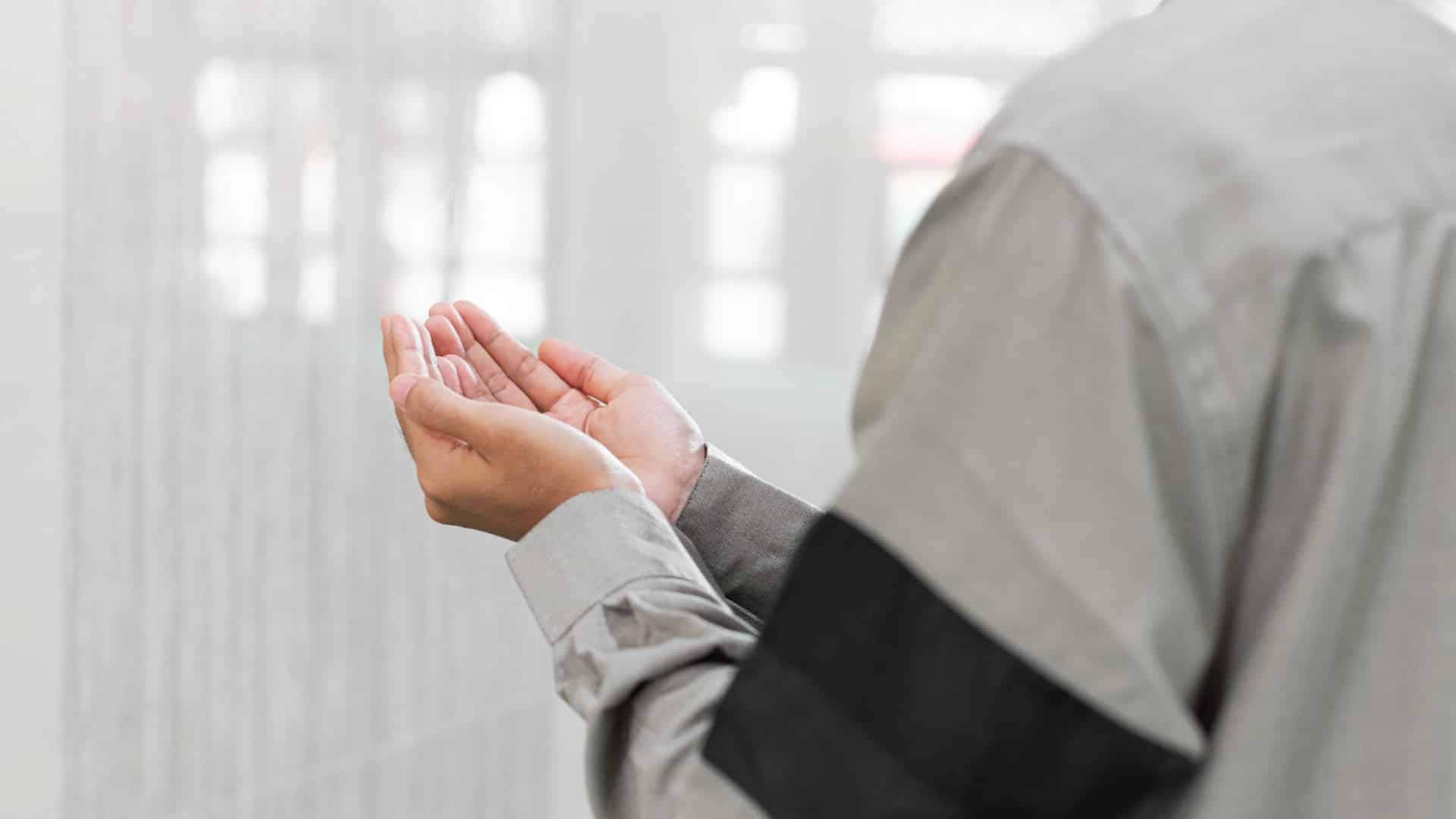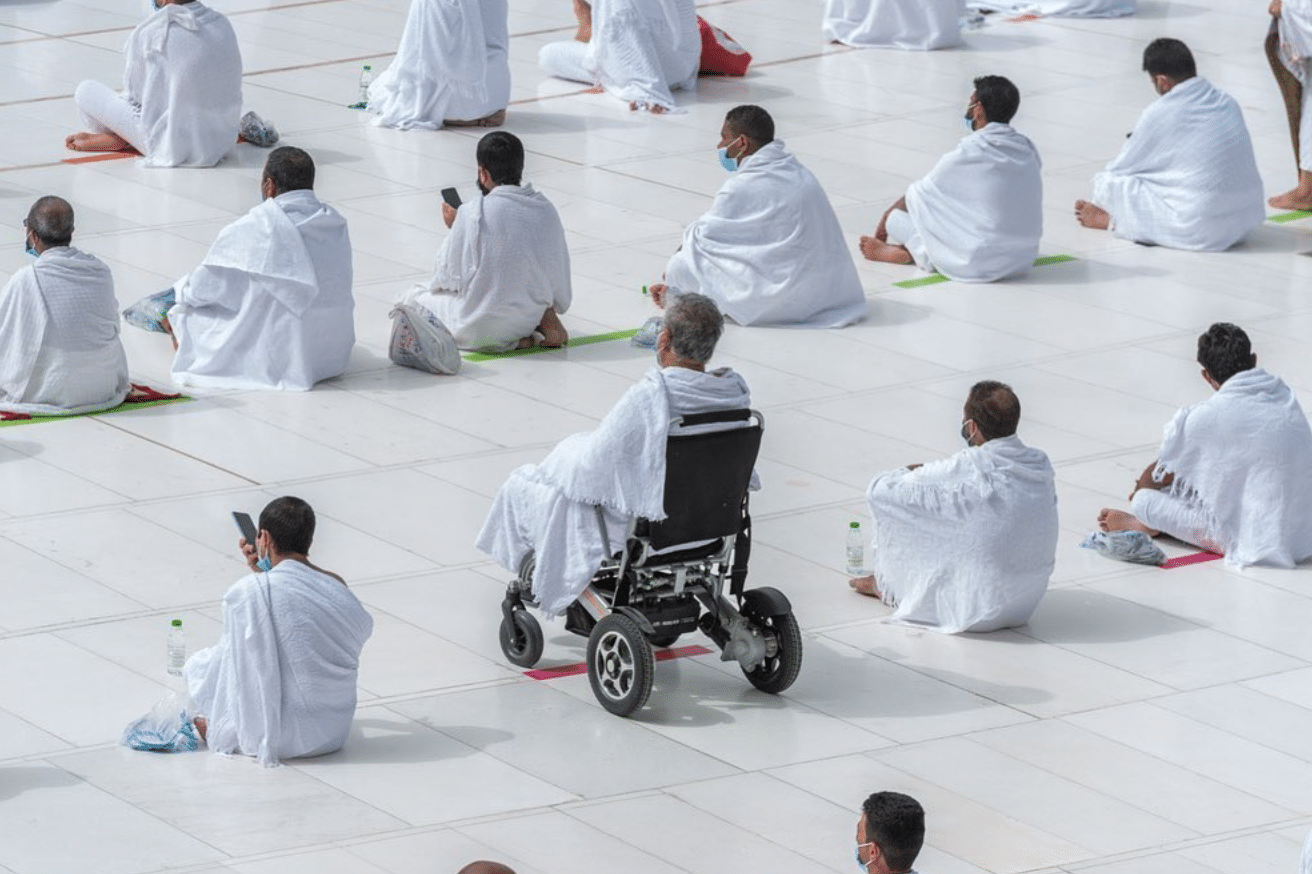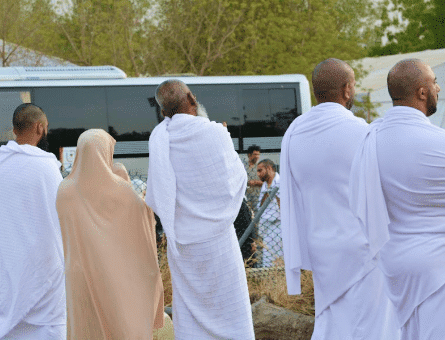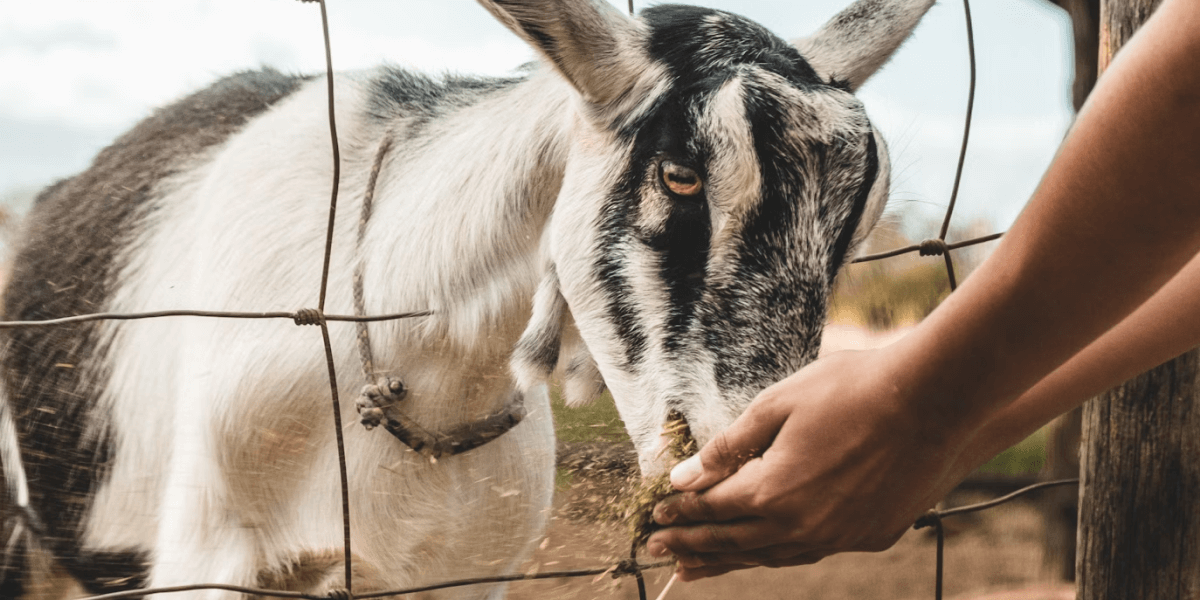What is Udhiyah in Islam? – Everything you need to know
Hajj, the annual pilgrimage, concludes with performing the ritual Qurbani of an approved and designated animal (camel, cow, sheep, or goat) in Islam, also known as Udhiyah. The purpose of the ritual is to commemorate the willingness of Prophet Ibrahim (AS) to sacrifice his firstborn, Prophet Ismail (AS), for the sake of Allah Almighty.
Once the animal has been sacrificed, it is time to distribute the meat among the needy. In this article, we will discuss the significance of udhiyah in Islam.
What Is Udhiyah?
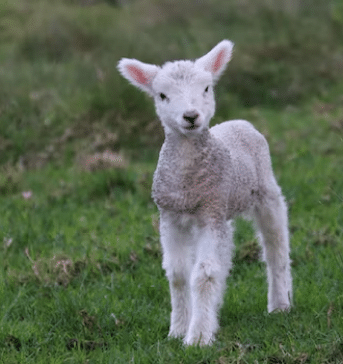 Commonly known as Qurbani, udhiyah is the Islamic tradition of sacrificing an animal for the sake of Allah SWT after the Eid ul-Adha prayer on the 10th of Dhul Hijjah. It is compulsory for every sane and mature Muslim who has wealth equivalent to the amount of Nisab.
Commonly known as Qurbani, udhiyah is the Islamic tradition of sacrificing an animal for the sake of Allah SWT after the Eid ul-Adha prayer on the 10th of Dhul Hijjah. It is compulsory for every sane and mature Muslim who has wealth equivalent to the amount of Nisab.
Udhiyah is an Arabic term that literally means “slaughtering an animal of the an’aam class (goat, sheep, cows, or camels) during the days of Eid ul-Adha in order to commemorate the sacrifice of Prophet Ibrahim (AS) and his son, Prophet Ismail (AS). Allah SWT in the Holy Quran says:
“Therefore turn in prayer to your Lord and sacrifice (to Him only).” [Holy Quran, Al-Kawthar 108:2]
“Say (O Muhammad): Verily, my Salaah (prayer), my sacrifice, my living, and my dying are for Allah, the Lord of the ‘Alameen (mankind, jinn, and all that exists). He has no partner. And of this, I have been commanded, and I am the first of the Muslims.” [Holy Quran, Al-An’am 6:162]
Note that one can only offer udhiyah from the 10th of Dhul Hijjah (after the Eid ul-Adha prayer) till the 13th of Dhul Hijjah (the last days of Tashreeq.)
Is Udhiyah Obligatory?
Different Islamic schools of thought have different views about the ruling of udhiyah. According to the majority of Islamic scholars, udhiyah is a Sunnah and not Wajib (obligatory). Ibn Qudamah (may Allah have mercy on him) said, “The majority of scholars are of the view that udhiyah is a confirmed Sunnah and is not obligatory.”
He further added that it was narrated by Abu Hurairah (RA), “The Messenger (PBUH) of Allah SWT said, “Whoever can afford it but does not offer a sacrifice, let him not come near our prayer-place.” And it was reported from Mikhnaf ibn Sulaym that udhiyah the Prophet Muhammad (PBUH) said: “O people, each household, each year, must offer a sacrifice (udhiyah) and an ‘atirah [a sacrifice that was offered during Rajab in the pre-Islamic period].”
Shaykh Muhammad ibn’ Uthaymeen (may Allaah have mercy on him) said: “Udhiyah is Sunnah mu’akkadah for the one who is able to do it, so a person should offer the sacrifice on behalf of himself and the members of his household.” (Fataawa Ibn’ Uthaymeen, 2/661)
Ibn Abbas (RA) narrated that Prophet Muhammad (PBUH) said, “There are three things that are obligatory for me, but for you they are optional. They are: “Witr, the sacrifice (udhiyah) and the two (Sunnah) rak’ahs of Fajr.”
In another instance, it is narrated that the Messenger (PBUH) of Allah SWT said, “Whoever wants to offer the udhiyah, when the first ten days of Dhu’l-Hijjah begin, let him not remove anything of his hair or skin.” (Muslim)
In light of the above-mentioned hadith, Imam ash-Shafi said, “This indicates that the udhiyah is not obligatory, because the Prophet Muhammad (PBUH) said: “and [he] wants,” so he connected it to his wanting to do it. If it were obligatory, he would have said: let him not remove anything from his hair until he offers the udhiyah.” (Al-Majmu ‘, 8/386)
This clearly indicates that according to the basic principles of Islam, udhiyah isn’t obligatory. Shaykh Ibn Baz said, “The ruling on the udhiyah is that it is Sunnah if one can afford it, but it is not obligatory, because the Prophet (blessings and peace of Allah be upon him) used to sacrifice two rams that were white speckled with black, and during his lifetime and after his death (blessings and peace of Allah be upon him), the Sahabah also used to offer the udhiyah, as the Muslims continued to do after their time, and there is no report in the shar’i evidence to suggest that the udhiyah is obligatory. The view that it is obligatory is a weak view.” (Majmu‘ Fatawa Ibn Baz, 18/36)
On the flip side, according to Abu Haneefah, al-Layth, and al-Oozaa’i, Udhiyah is Wajib (obligatory). Imaam Ahmed says it on the basis of the following proof:
The Ayah: “Therefore turn in prayer to your Lord and sacrifice (to Him only).” [al-Kawthar 108:2]. Because it is stated in the Holy Quran and are the words of Allah SWT, it is considered a command, and a command implies that something is obligatory.
The hadith of Jundub (may Allah be pleased with him), reported in al-Saheehayn and elsewhere, who said: “The Messenger (PBUH) of Allah SWT said: ‘Whoever slaughtered his sacrifice before he prays, let him slaughter another one in its place, and whoever did not slaughter a sacrifice, let him do so in the name of Allah.'” (Reported by Muslim, 3621)
Udhiyah Rules
Udhiyah is an act of worship that reminds us of the great sacrifice of Prophet Ibrahim (AS) and his son Prophet Ismail (AS) for the sake of Allah SWT on the plains of Makkah. Here is a list of rules that one must follow to perform Qurbani righteously:
- The sacrificial animal should have at least reached the age of two, equivalent to six months for a lamb, one year for a goat, two years for a cow, and five years for a camel.
- The animal should be free of any defects and/or faults because the Prophet Muhammad (PBUH) said: “There are four that will not do for sacrifice: a one-eyed animal whose defect is obvious, a sick animal whose sickness is obvious, a lame animal whose limp is obvious and an emaciated animal that has no marrow in its bones.” (Saheeh, Saheeh al-Jaami’, no. 886). However, although milder defects don’t disqualify an animal but it is makrooh to sacrifice such animals. For example, an animal with a missing ear or horn, or an animal with slits in its ears, etc. Udhiyah is an act of worship to Allah SWT, and Allah SWT is good and accepts only that which is good. Whoever honours the rites of Allah SWT, this has to do with the piety (taqwa) of the heart.
- It is forbidden to sell the sacrificial animals. Prophet Muhammad (PBUH) said, “Whoever sells the skin of his udhiyah, there is no udhiyah for him (i.e., it is not counted as udhiyah).” If an animal has been selected for sacrifice, it is not permissible to sell it or give it away, except in exchange for one that is better. If an animal gives birth, its offspring should be sacrificed along with it. It is also permissible to ride it if necessary. The evidence for this is the report narrated by al-Bukhaari and a Muslim from Abu Hurairah (RA), who said that “The Messenger (PBUH) of Allah SWT saw a man leading his camel and told him, ‘Ride it.’ He said, ‘It is for sacrifice.’ He said, ‘Ride it.’ a second or third time.”
- It should be sacrificed at the specified time, which is from after the prayer and khutbah of Eid – not from when the time for the prayer and khutbah starts – until before sunset on the last of the days of Tashreeq, which is the 13th day of Dhu’l-Hijjah. The Prophet Muhammad (PBIH) said: “Whoever sacrifices before the prayer, let him repeat it.” (Reported by al-Bukhaari and Muslim). ‘Ali (may Allah be pleased with him) said: “The days of Nahr (Sacrifice) are the day of al-Adhaa and the three days following it.” This is also the opinion of al-Hasan al-Basri, ‘Ata’ ibn Abi Rabaah, al-Oozaa’i, al-Shaafa’I, and Ibn al-Mundhir, may Allah have mercy on them all.
- Once the sacrifice has been made, the meat should be distributed into three portions, one for the household, one for the friends and family, and one for those in need (poor).
Can I Give Qurbani On Behalf of My Deceased Parents?
Aishah (RA) reported that, “Allah’s Messenger (PBUH) ordered a horned ram with black legs, a black belly and black around its eyes, and it was brought for him to sacrifice and he said to ‘Aishah (RA), ‘Aishah, get the knife.’ Then he said, ‘Sharpen it with a stone.’ When she had done so, he took it, then taking it (the ram), he placed it on the ground and slaughtered it. He then said, ‘Bismillah (In the name of Allah), O Allah, accept it from Muhammad, Muhammad’s family, and from Muhammad’s Ummah (followers).’ Then he sacrificed it.”
The simple answer to this question is “Yes,” offering udhiyah (Qurbani) on behalf of your family, including those who have passed away, is allowed and accepted in Islam. However, because the basic principle of udhiyah is that it is prescribed for the living, there are three conditions for offering udhiyah on behalf of one’s deceased parents:
- When the person offering udhiyah intends to make a sacrifice on behalf of themselves, their family, and the ones who have passed away. This is permissible because the Messenger (PBUH) of Allah SWT offered sacrifice on behalf of himself, the members of his family, and those who had passed away.
- According to the second condition, offering udhiyah is allowed on behalf of one’s deceased parents if it is to fulfil their last wishes (wasaaya). Performing Qurbani in such conditions is obligatory unless and until one is financially unstable to do so. Allah SWT in the Holy Quran says, “Then whoever changes the bequest after hearing it, the sin shall be on those who make the change. Truly, Allah is All-Hearer, All-Knower.” [Holy Quran, al-Baqarah 2:181]
- Suppose one wants to offer sacrifice (udhiyah) independently and voluntarily on behalf of the dead. In that case, they are permitted to, especially if one wants to make a sacrifice on behalf of their deceased mother and father. According to Hanbali fuqaha, the scholar of this opinion, the reward for udhiyah will reach the deceased and will benefit them. Simply put, it is a way of giving charity (Sadaqah) on behalf of the dead.
However, there is a group of Islamic scholars that deems the practice of offering udhiyah (Qurbani) on behalf of the dead separately as there is no proof that the Messenger (PBUH) of Allah SWT or his companions ever did so.
Can I Give Qurbani On Behalf of My Daughter?
 Yes, as the head of the family, a father is expected to offer udhiyah (Qurbani) on behalf of his dependents, including his son and daughter. A father is allowed to do so until the children are eligible to perform Qurbani by themselves.
Yes, as the head of the family, a father is expected to offer udhiyah (Qurbani) on behalf of his dependents, including his son and daughter. A father is allowed to do so until the children are eligible to perform Qurbani by themselves.
However, there’s a contradiction of opinion on whether it is wajib on the father to perform Qurbani on behalf of his children or not. A popular verdict of Islamic scholars is mentioned in al-Durr al-Mukhtar:
“(One opinion is that) the father will offer Qurbani on the child’s behalf from his wealth, this was affirmed in al-Hidāyah. It has [also] been said that the father will not offer qurbāni on behalf of his child, this opinion has been ratified in al-Kāfī, and the author said it is not permissible for the father that he offers the sacrifice from the child’s wealth, and ibn Shihnah gave preference to it. I say that this is the relied upon view because it is mentioned in the text of Mawāhib al-Rahmān that this is the soundest opinion that the verdict is given upon.” [al-Durr al-Mukhtār, Kitāb al-Udhiyah, Volume 9, pg 524]
Can a Husband and Wife Perform Qurbani Together?
A ram or sheep for udhiyah is only valid on behalf of a single person. This means that if a husband is performing Qurbani of a goat or sheep, then his wife can’t participate in the same Qurbani as a sheep or goat is equivalent to one share only. On the other hand, if a man and his wife are performing the Qurbani of a camel or cow, they can offer udhiyah together.
Sharing or partnership of udhiyah in Islam is only allowed in the form of a reward, in the sense that the husband offers Qurbani and lets the family (wife and children) share the reward, or the woman offers udhiyah and lets her husband share the reward.
Ibn al-Qayyim (may Allah have mercy on him) said, “The teaching of the Prophet Muhammad (PBUH) is that the sacrifice of a sheep is acceptable on behalf of a man and on behalf of the members of his household, even if they are many in number, as ‘Ataa’ ibn Yasaar said: ‘I asked Abu Ayyoob al-Ansaari: ‘How were the sacrifices (udhiyah) offered at the time of the Messenger of Allah (blessings and peace of Allah be upon him)?’ He said: ‘A man would sacrifice a sheep on his own behalf and on behalf of the members of his household, and they would eat from it and give some of it away.”” (At-Tirmidhi said: This is a Sahih Hasan hadith. End quote from Zaad al-Ma‘aad (2/295)).
Ibn Rushd said, “The scholars are unanimously agreed that a ram is only acceptable on behalf of one person, apart from what Maalik narrated about it being acceptable for a man to sacrifice it on behalf of himself and on behalf of the members of his household, but not by way of sharing the cost; rather this applies if he buys it by himself. That is because of the report narrated from ‘Aa’ishah, according to which she said: ‘We were at Mina, and some beef was brought in to us. We said: ‘What is this?’ They said: ‘The Messenger (PBUH) of Allah SWTh as offered a sacrifice on behalf of his wives.””
Shaykh ‘Abd al-Kareem al-Khudayr (may Allah preserve him) was asked, “What is the ruling on me sharing with my wife in the udhiyah? And what are the rulings connected to that?”
He replied, “If the head of the household offers the udhiyah, that sacrifice is sufficient on his own behalf and on behalf of the members of his household. So if the husband offers the udhiyah on his own behalf and on behalf of the members of his household, that is sufficient, and the wife does not have to offer a sacrifice on her own behalf.”
That applies unless what is meant is that he pays half the price and she pays the other half so that they each have a share in it on this basis. The basic principle is that the udhiyah is to be offered on behalf of the head of the household – the husband – and his wife and children are included with him. But if that is by way of helping him because he cannot afford the price of the udhiyah, and his wife wants to help him with the cost, then there is nothing wrong with that.
In addition to this, when a husband and wife intend to offer udhiyah (Qurbani), they must ensure that they don’t trim their nails or hair from the 1st of Dhul Hijjah. The Messenger (PBUH) of Allah SWT said, “Let him not remove anything from his hair and nails until he has offered the sacrifice.” And according to yet another version, “He should not touch his hair or skin.”
Can We Give Money Instead Of Qurbani?
 According to Islamic scholars, offering udhiyah (Qurbani) is better than giving its price to charity. This is primarily because performing the ritual commemorates the devotion of Prophet Ibrahim (AS) and brings one closer to Allah SWT.
According to Islamic scholars, offering udhiyah (Qurbani) is better than giving its price to charity. This is primarily because performing the ritual commemorates the devotion of Prophet Ibrahim (AS) and brings one closer to Allah SWT.
Ibn al-Qayyim said in Tuhfat al-Mawdood (p. 65): “Sacrifice at the appropriate time, such as during Hajj and on Eid al-Adha, is better than giving its price in charity even if one gives more, because offering a sacrifice and shedding blood is what is required, and it is an act of worship that is mentioned alongside prayer,” as Allah SWT says (interpretation of the meaning):
“Therefore turn in prayer to your Lord and sacrifice (to Him only).” [Holy Quran, al-Kawthar: 108:2]
“Say (O Muhammad): Verily, my salaah (prayer), my sacrifice, my living, and my dying are for Allâh, the Lord of the ‘Alameen (mankind, jinn, and all that exists).” [Holy Quran, al-An‘aam 6:162]
Who Needs to Pay for Qurbani?
According to the Hanafi school of thought, Qurbani is compulsory for every sane Muslim who has reached the age of puberty and is financially stable; has money equivalent to the value of Nisab, which is 612.35 grams of silver and 87.48 grams of gold. Qurbani is also mandatory for every non-travelling passenger.
The Messenger (PBUH) of Allah SWT said, “The people of each household should offer an udhiyah every year.” (Narrated by Ahmad, 20207)
Is Qurbani Sunnah or Farz?
Allah SWT tells us in the Holy Quran, “And complete the Hajj and ‘umrah for Allah. But if you are prevented, then [offer] what can be obtained with ease of sacrificial animals. And do not shave your heads until the sacrificial animal has reached its place of slaughter. And whoever among you is ill or has an ailment of the head [making shaving necessary must offer] a ransom of fasting [three days] or charity or sacrifice. And when you are secure, then whoever performs ‘umrah [during the Hajj months] followed by Hajj [offers] what can be obtained with ease of sacrificial animals. And whoever cannot find [or afford such an animal] – then a fast of three days during Hajj and of seven when you have returned [home].” [Holy Quran, 2:196]
According to the Shafi’i school of thought, Qurbani is Sunnah Muakadah. This means that if one is financially and physically stable, then it is highly recommended that one should perform Qurbani. However, it isn’t compulsory.
Summary – Udhiyah
Udhiyah is one of the greatest rituals in Islam. It refers to the sacrifice of an animal for the sake of Allah SWT after the completion of Hajj and the Eid ul-Adha prayer. Udhiyah reminds us of the obedience and devotion of our father Prophet Ibrahim (AS) to Allah SWT, His mercy on Prophet Ismail (AS), and the blessings of the Almighty.
Like every other ritual in Islam, udhiyah has strict regulations that must be followed in order to perform Qurbani in a righteous way, the way of Prophet Muhammad (PBUH).
Explore The New Pilgrim App
The Ultimate App
for Hajj and Umrah!








